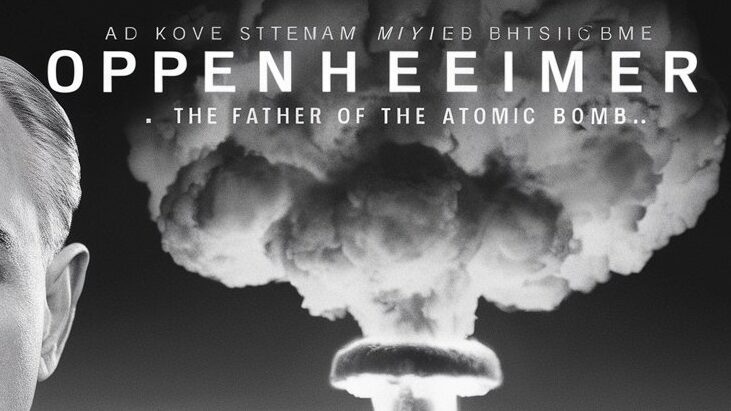Early Life and Education
J. Robert Oppenheimer, born in 1904, was an American theoretical physicist whose contributions significantly shaped modern science. His early years were marked by academic brilliance, which led him to the University of Göttingen in Germany, where he earned his Ph.D. in physics at 24. This achievement set the stage for a career that would leave an indelible mark on history.
Academic Excellence
Oppenheimer was renowned for his exceptional intellect. His contributions to theoretical physics included significant work on quantum mechanics and black holes. These achievements established him as a leading figure in the scientific community long before his involvement in the most controversial project of his career.
The Manhattan Project
During World War II, Oppenheimer was appointed the scientific director of the Manhattan Project, a top-secret U.S. government initiative. This project aimed to develop the first atomic bombs, a goal that was achieved under Oppenheimer’s leadership. His role earned him the nickname “father of the atomic bomb.”

The Bombs and Their Impact
The atomic bombs developed under the Manhattan Project were used in the bombings of Hiroshima and Nagasaki in Japan in August 1945. These bombings played a crucial role in hastening the end of World War II. However, they also ushered in the nuclear age, raising profound ethical and moral questions about the use of such devastating weapons.
A Complex Legacy
Oppenheimer’s legacy is a subject of ongoing debate. While his scientific brilliance and leadership in the Manhattan Project are undeniable, the consequences of the atomic bombings cast a long shadow. Oppenheimer himself later expressed deep regret over the use of atomic bombs, becoming a vocal advocate for nuclear arms control.

Post-War Contributions
After World War II, Oppenheimer contributed to science and public policy. He served as a critical advisor to the U.S. government on nuclear weapons and energy issues. His insights were invaluable during the early years of the Cold War as the world grappled with the realities of atomic power.
Security Clearance Controversy
In the 1950s, Oppenheimer’s past associations with communists led to a highly publicized security hearing. His security clearance was revoked, effectively ending his influence in government circles. This event remains a controversial chapter in his life, highlighting the complex interplay between politics and science during the Cold War era.
Regret and Advocacy
Despite his pivotal role in developing atomic weapons, Oppenheimer’s later years were marked by his efforts to control nuclear proliferation. He became a leading advocate for international arms control agreements, reflecting his profound sense of responsibility for the destructive potential of the technologies he helped create.

Recognition and Honors
Oppenheimer received numerous honors and awards for his scientific contributions throughout his life. These accolades, however, were often overshadowed by the controversy surrounding his security clearance and the moral implications of his work on the atomic bomb.
Legacy in Popular Culture
Oppenheimer’s life and work have been the subject of numerous books, documentaries, and films. The 2023 movie “Oppenheimer,” directed by Christopher Nolan, brought his story to a new generation, though it also fictionalized certain aspects of his life for dramatic effect.
Also Read: Y2Mate com 2024
Ongoing Debate
The debate over Oppenheimer’s legacy continues to this day. Historians and ethicists grapple with the dual nature of his contributions: the advancement of scientific knowledge and the ethical dilemmas posed by nuclear weapons. This ongoing discussion underscores the complexity of his impact on history.

Scientific Contributions
Beyond the Manhattan Project, Oppenheimer’s work in theoretical physics laid the groundwork for future discoveries. His research on quantum mechanics and black holes remains influential, demonstrating the breadth of his intellectual legacy.
Personal Life
Intense intellectual engagement and complex relationships marked Oppenheimer’s personal life. His marriage to Katherine “Kitty” Puening, a botanist and former communist, was a source of support and controversy. Together, they navigated the tumultuous political landscape of mid-20th-century America.
Public Perception
Public perception of Oppenheimer has evolved, and he was initially celebrated as a war hero, but his later years were marred by suspicion and political ostracism. Today, he is often viewed as a tragic figure, symbolic of scientists’ ethical challenges.

Final Years
In his final years, Oppenheimer continued to write and lecture on science and public policy. Despite his reduced influence in government circles, he remained a respected figure in the academic community. He died in 1967, leaving behind a complex and multifaceted legacy.
Learning Resources
Several resources are available for those interested in learning more about Oppenheimer. The PBS documentary on his life provides an in-depth look at his contributions and controversies. The SparkNotes study guide also offers a concise overview of key terms and concepts related to his work.
Influence on Modern Science
Oppenheimer’s influence on modern science extends beyond his immediate contributions. He mentored a generation of physicists, many of whom made significant advances in their own right. His impact on the scientific community is both profound and enduring.

Ethical Reflections
The ethical reflections prompted by Oppenheimer’s work continue to resonate. His advocacy for nuclear arms control serves as a reminder of the responsibilities that come with scientific innovation. This legacy challenges scientists to consider the broader implications of their work.
Conclusion
J. Robert Oppenheimer remains one of modern history’s most complex and fascinating figures. His scientific achievements and the moral dilemmas they engendered provide rich material for reflection and debate. Oppenheimer’s life and work offer valuable lessons on the intersection of science, ethics, and public policy as the world continues to grapple with the legacy of the atomic age.


